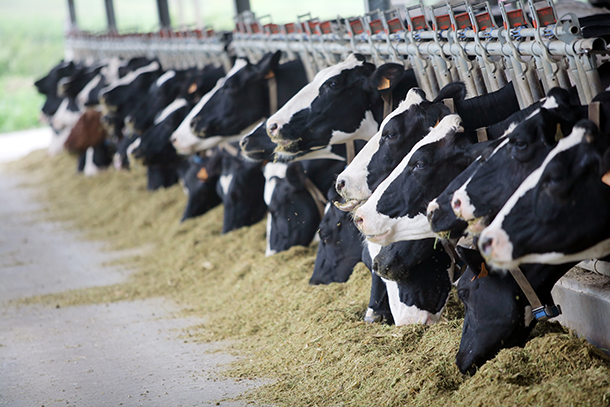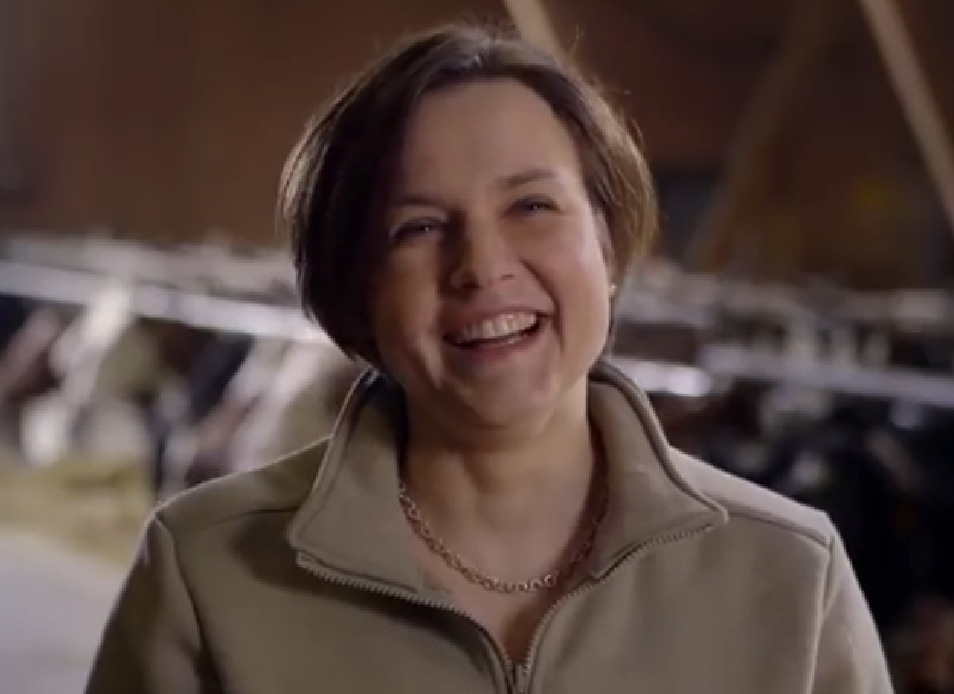Science Note: Reducing Bovine Belches and Global Warming Gases
Air Date: Week of August 1, 2014

Cows’ burps produce significant amounts of methane every year to the world’s greenhouse gas emissions. (Photo: Bigstockphoto)
Researchers from Holland and around the world are developing a feed additive that reduces methane emissions from cows. Jake Lucas reports that the additive prevents microbes in bovine gut from making so much of the potent global warming gas.
Transcript
LUCAS: If cows were more polite, we’d have one less pollution problem to worry about. Whenever cows let loose a little gas—particularly when they burp—they emit methane, a powerful greenhouse gas. In fact, the EPA estimates that burping cattle accounted for roughly two and a half percent of the total U.S. greenhouse gas emissions in 2012.
It turns out, those potent burps come from interactions within a complex community of microorganisms in the cow’s gut. Some of those microbes break down cellulose, otherwise indigestible fibers that make up plants’ cell walls. That process produces hydrogen. Then, simple, primitive organisms called Archaea use that hydrogen and produce methane.

Petra Simic, the scientist leading DSM’s project. (Photo: Courtesy of DSM’s promotional video for the project)
Now, researchers led by Dutch scientists are developing a feed additive that inhibits some of those Archaea, to reduce methane emissions from cows. So far, the team has reduced methane as much as 60%, depending on which stage of milk production the cows are in, and this new process doesn’t interfere with the cows’ digestion or how much they eat.
The next step is to make sure the additive is safe for cows, workers who deal with it, and people who drink the milk. All they need now is to work on the cows’ manners.
That’s this week’s note on emerging science. I’m Jake Lucas.
Links
Read the EPA’s analysis of greenhouse gas emissions attributable to animal agriculture
The website of DSM, the Dutch life science company leading the development of the additive
Living on Earth wants to hear from you!
Living on Earth
62 Calef Highway, Suite 212
Lee, NH 03861
Telephone: 617-287-4121
E-mail: comments@loe.org
Newsletter [Click here]
Donate to Living on Earth!
Living on Earth is an independent media program and relies entirely on contributions from listeners and institutions supporting public service. Please donate now to preserve an independent environmental voice.
NewsletterLiving on Earth offers a weekly delivery of the show's rundown to your mailbox. Sign up for our newsletter today!
 Sailors For The Sea: Be the change you want to sea.
Sailors For The Sea: Be the change you want to sea.
 The Grantham Foundation for the Protection of the Environment: Committed to protecting and improving the health of the global environment.
The Grantham Foundation for the Protection of the Environment: Committed to protecting and improving the health of the global environment.
 Contribute to Living on Earth and receive, as our gift to you, an archival print of one of Mark Seth Lender's extraordinary wildlife photographs. Follow the link to see Mark's current collection of photographs.
Contribute to Living on Earth and receive, as our gift to you, an archival print of one of Mark Seth Lender's extraordinary wildlife photographs. Follow the link to see Mark's current collection of photographs.
 Buy a signed copy of Mark Seth Lender's book Smeagull the Seagull & support Living on Earth
Buy a signed copy of Mark Seth Lender's book Smeagull the Seagull & support Living on Earth

